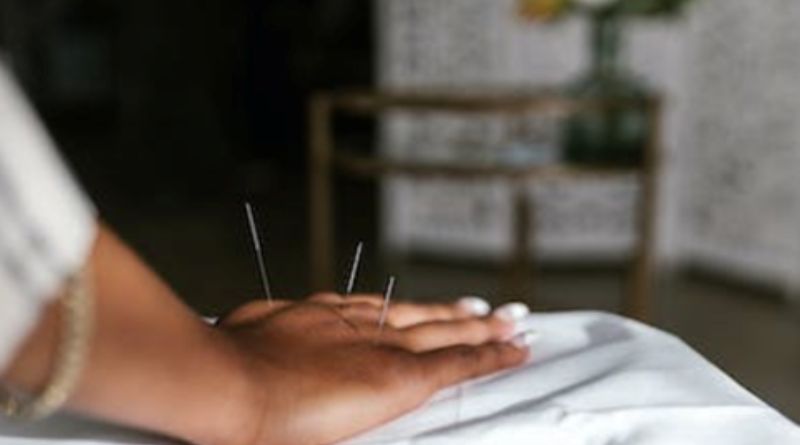Bruxism, the grinding or clenching of teeth, often occurs as a response to stress and anxiety. Chronic stress can take a toll on both our mental and physical well-being, contributing to the development and persistence of bruxism.
Moreover, implementing effective stress reduction techniques can play a crucial role in managing and alleviating bruxism. In this comprehensive article, we will explore various strategies to reduce stress and promote relaxation, helping individuals break the cycle of bruxism and improve their overall oral health.
1. Identify Stress Triggers
The first step in reducing stress is to identify the specific triggers that contribute to your stress levels. It could be work-related pressure, relationship issues, financial concerns, or personal challenges.
Keeping a stress journal can help you recognize patterns and pinpoint the factors that contribute to your stress.
2. Practice Relaxation Techniques
Engaging in relaxation techniques can significantly reduce stress and alleviate bruxism. Some effective techniques include deep breathing exercises, progressive muscle relaxation, guided imagery, and mindfulness meditation.
These practices help calm the mind, release muscle tension, and promote a sense of relaxation.
3. Exercise Regularly

Regular physical activity is a powerful stress-reducing strategy. Engaging in exercise, whether it’s walking, jogging, yoga, or dancing, helps release endorphins, which are natural mood elevators.
Exercise also promotes better sleep, improves overall well-being, and serves as a healthy outlet for stress.
4. Prioritize Self-Care
Taking care of yourself is essential in managing stress and bruxism. Make self-care a priority by engaging in activities that bring you joy and relaxation.
This could include reading, taking a bath, listening to music, practicing hobbies, spending time in nature, or engaging in creative outlets.
Self-care also includes going to a healthcare professional or dentist and getting dentist recommended night guards to help with your bruxism.
5. Maintain a Healthy Lifestyle
A healthy lifestyle supports stress reduction and helps manage bruxism. Ensure you get enough sleep, eat a balanced diet, and limit your intake of caffeine, alcohol, and nicotine.
These substances can exacerbate stress and contribute to teeth grinding. Prioritize nutritious meals, hydrate adequately, and limit stimulants.
6. Time Management and Organization
Poor time management and disorganization can lead to heightened stress levels. Effectively manage your time by creating a schedule, setting realistic goals, and breaking tasks into manageable chunks.
Prioritize and delegate tasks as needed to avoid feeling overwhelmed, which can contribute to bruxism.
7. Seek Support and Social Connection
Building a support system is vital in managing stress. Reach out to friends, family, or support groups to share your experiences, seek guidance, and gain perspective.
Social connection provides emotional support and a sense of belonging, which can alleviate stress and improve overall well-being.
8. Cognitive-Behavioral Therapy (CBT)
CBT is a therapeutic approach that helps individuals identify and modify negative thought patterns and behaviors. It can be effective in managing stress and addressing maladaptive coping mechanisms, including bruxism.
Working with a trained therapist, you can learn strategies to reframe negative thoughts, manage stress, and develop healthier responses to stressful situations.
9. Relaxation Apps and Tools
Utilize technology to access relaxation apps or online resources that provide guided meditations, breathing exercises, and stress reduction techniques.
These tools can be easily accessible and provide support during stressful times, allowing you to practice relaxation techniques wherever you are.
10. Consider Professional Help
If stress and bruxism persist despite your efforts, it may be beneficial to seek professional help. Dentists, psychologists, and sleep specialists can provide further guidance and specialized treatment options for managing stress and bruxism.
They can conduct a thorough evaluation, assess the severity of your bruxism, and develop a personalized treatment plan tailored to your specific needs.
11. Aromatherapy
Certain scents, such as lavender, chamomile, or bergamot, are known to have calming effects. Incorporating aromatherapy through essential oils or scented candles can help create a soothing environment and promote relaxation.
12. Journaling
Writing down your thoughts, feelings, and experiences in a journal can be a therapeutic practice. It allows you to express emotions, gain clarity, and release stress.
You can also use the journal to track your bruxism episodes, identifying patterns and triggers.
-
Acupuncture

Acupuncture is an alternative therapy that involves inserting thin needles into specific points of the body. It is believed to help balance energy flow and promote relaxation, which can aid in stress reduction and potentially alleviate bruxism symptoms.
14. Herbal Remedies
Some herbal supplements, such as valerian root, passionflower, or chamomile tea, have calming properties and may help reduce stress and promote better sleep.
However, it is important to consult with a healthcare professional before starting any herbal remedies to ensure they are safe and appropriate for you.
15. Biofeedback
Biofeedback is a technique that uses electronic sensors to monitor physiological responses, such as muscle tension or heart rate. By becoming aware of these bodily responses, individuals can learn to control them and reduce stress.
Biofeedback can be helpful in managing bruxism by training individuals to relax their jaw muscles.
16. Time in Nature
Spending time in nature has been shown to reduce stress levels and promote relaxation. Whether it’s going for a walk in the park, hiking in the mountains, or simply sitting in a garden, immersing yourself in natural surroundings can have a calming effect on the mind and body.
Conclusion
Reducing stress is a fundamental step in managing and alleviating bruxism. By implementing effective stress reduction strategies, individuals can break the cycle of teeth grinding and improve their overall oral health. Identifying stress triggers, practicing relaxation techniques, engaging in regular exercise, prioritizing self-care, and seeking support are key strategies to reduce stress levels.
Moreover, adopting a healthy lifestyle, managing time effectively, considering cognitive-behavioral therapy, utilizing relaxation apps, and seeking professional help when needed can further reduce stress. By integrating these practices into your daily life, you can significantly reduce stress and minimize the impact of bruxism on your oral health and overall well-being.
Get in touch with Clear Comfort Night Guards for best custom night guard.





